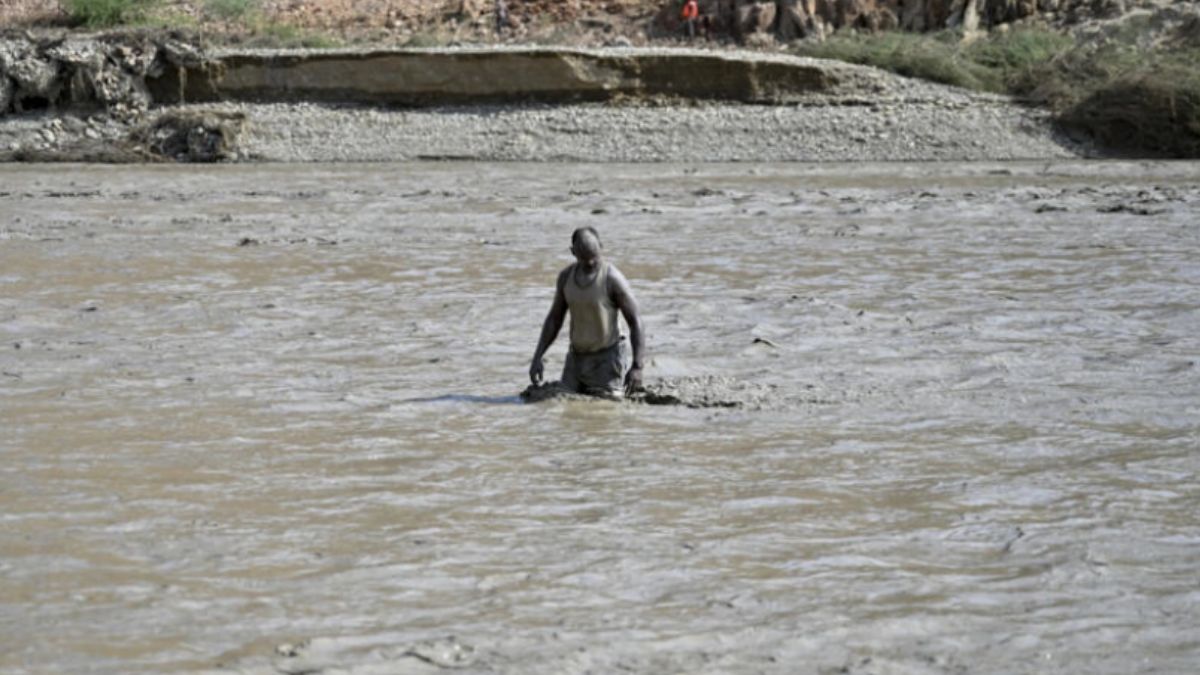Tunisia’s President Kais Saied was re-elected on Monday with 90.69 per cent of the vote, the head of independent commission for elections (ISIE) said on national television read more
)
Supporters of Tunisian President Kais Saied, celebrate as exit poll shows Saied won the presidential election in Tunis, Tunisia on October 6, 2024. Reuters File
Tunisia’s President Kais Saied was re-elected on Monday with 90.69 per cent of the vote, the head of independent commission for elections (ISIE) said on national television.
Saied, 66, won Sunday’s election by a landslide, with his challengers Ayachi Zemmal collecting 7.3 per cent and Zouhair Maghzaoui 1.9 per cent of votes cast, reported AFP.
The turnout was 28.8 per cent, the lowest since the country’s 2011 revolution.
An exit poll broadcast on public television had projected that 66-year-old would win with 89.2 per cent support, according to the country’s election body.
The third presidential election since the Tunisian revolution was marked by an unprecedented legal process, with many candidates disqualified or imprisoned. The Parliament passed a law stripping the administrative court of its authority to adjudicate electoral disputes, meaning no candidate could appeal the results, according to bne IntelliNews.
The Carnegie Endowment for International Peace noted that Saied was using this law to secure his victory. Of 17 the candidates who submitted papers, 14 were disqualified for failing to meet signature requirements, nationality criteria, or financial guarantees. Seven potential candidates could not file due to difficulties obtaining criminal record clearances from the Ministry of Interior.
While three candidates appealed their disqualifications and were reinstated by the administrative court, the electoral commission defied this ruling and permitted only three candidates on the ballot, reported bne IntelliNews.
Zouhaier Maghzaoui was the only candidate who actively campaigned, traveling to various Tunisian cities.
Saied relied on volunteers for his campaign and delivered a speech just two days before the election, while his opponent Ayachi Zammal was jailed for falsifying nominations and sentenced to at least 12 years.
In a recent speech, Saied promised economic reforms in public sectors like health, transport, and education, but these goals seem unlikely amid the current political climate.
Researcher Patricia Karam from the Arab Centre Washington DC told bne IntelliNews that while Saied considers himself a problem-solver, he has failed to address Tunisia’s economic challenges or establish political stability.
Re-electing Saied, despite his first-term failures, suggests that Tunisians still have confidence in him, albeit with higher expectations. This means he will likely face significant socio-economic challenges that he cannot overlook, added the report.
With inputs from agencies

 1 month ago
9
1 month ago
9
)
)
)
)
)
)
)
)
)
)
)
)
)
)
)
)
)
)
)
)
)
)
)
)
)
 English (US) ·
English (US) ·